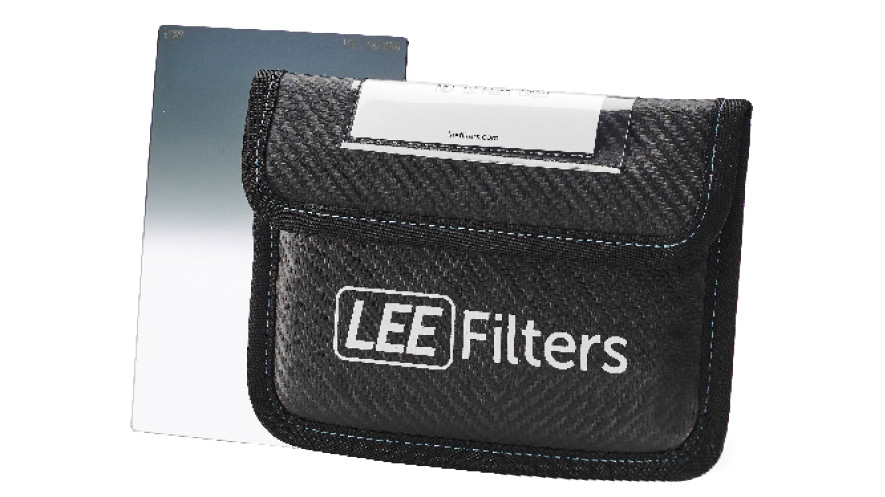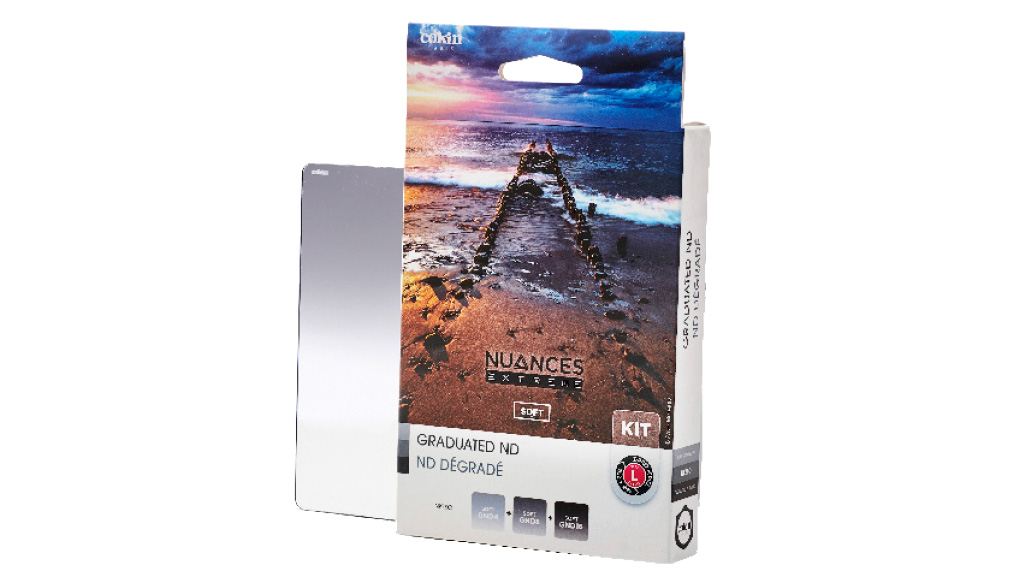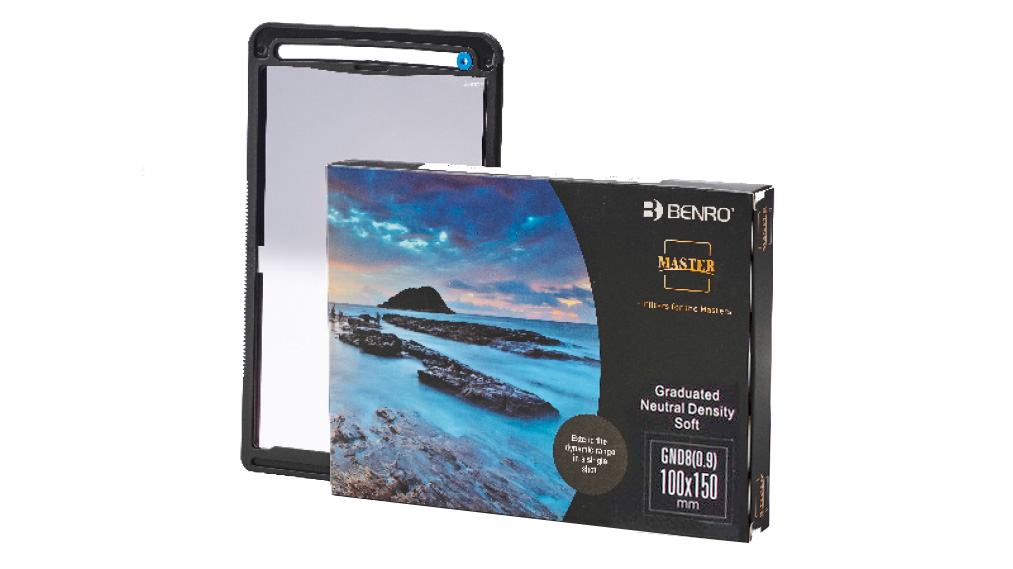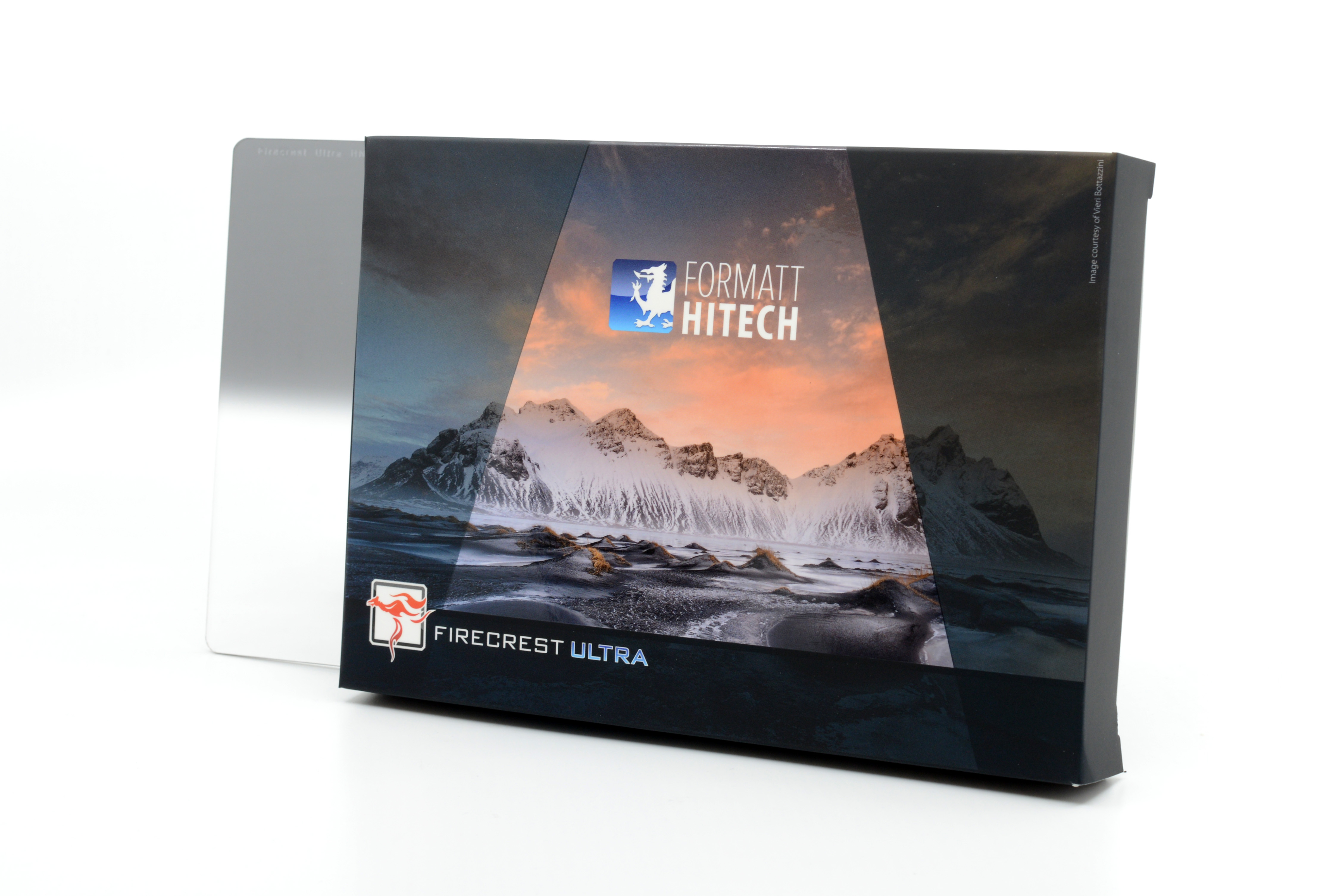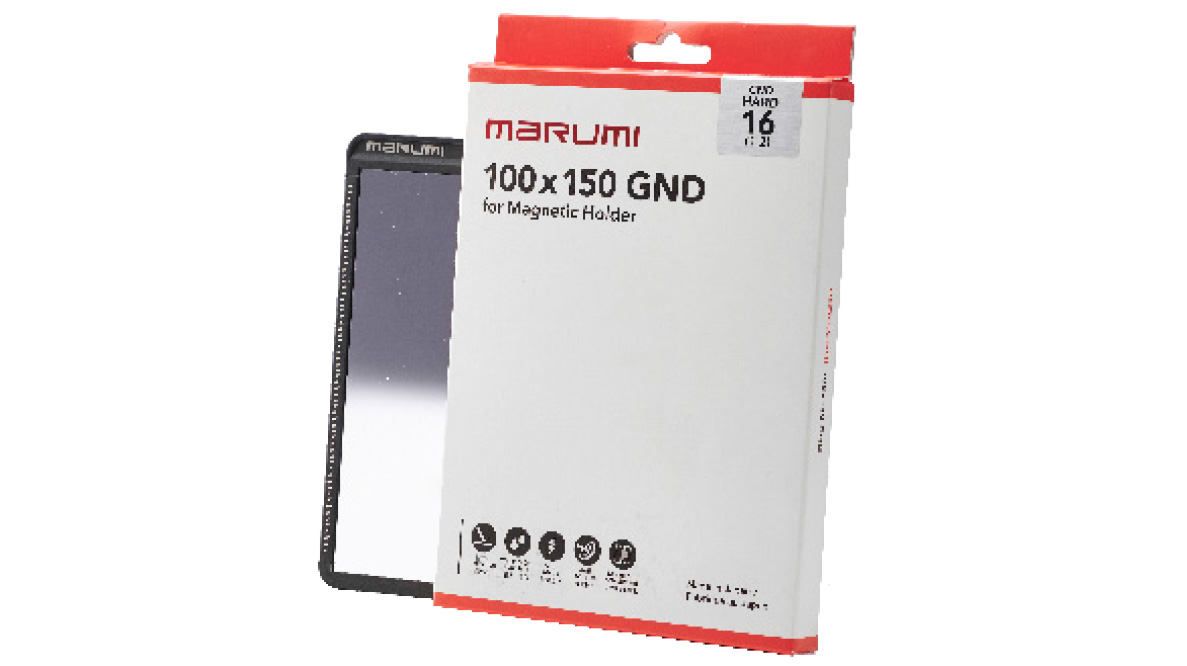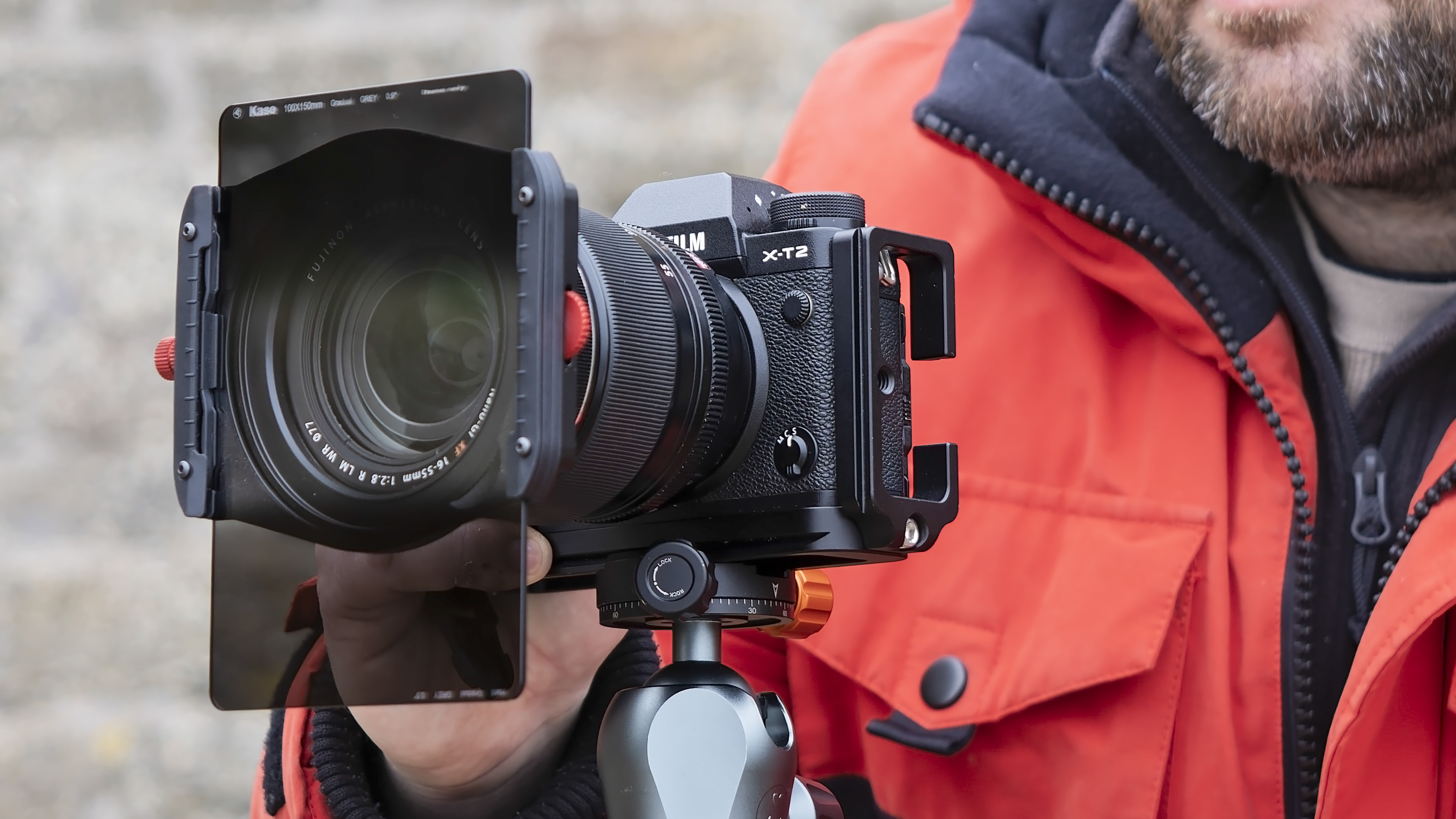The best ND grad filters in 2026: top graduated neutral density filters right now
This is my pick of the best ND grads for landscape photography: get bright skies under control for a more balanced exposure
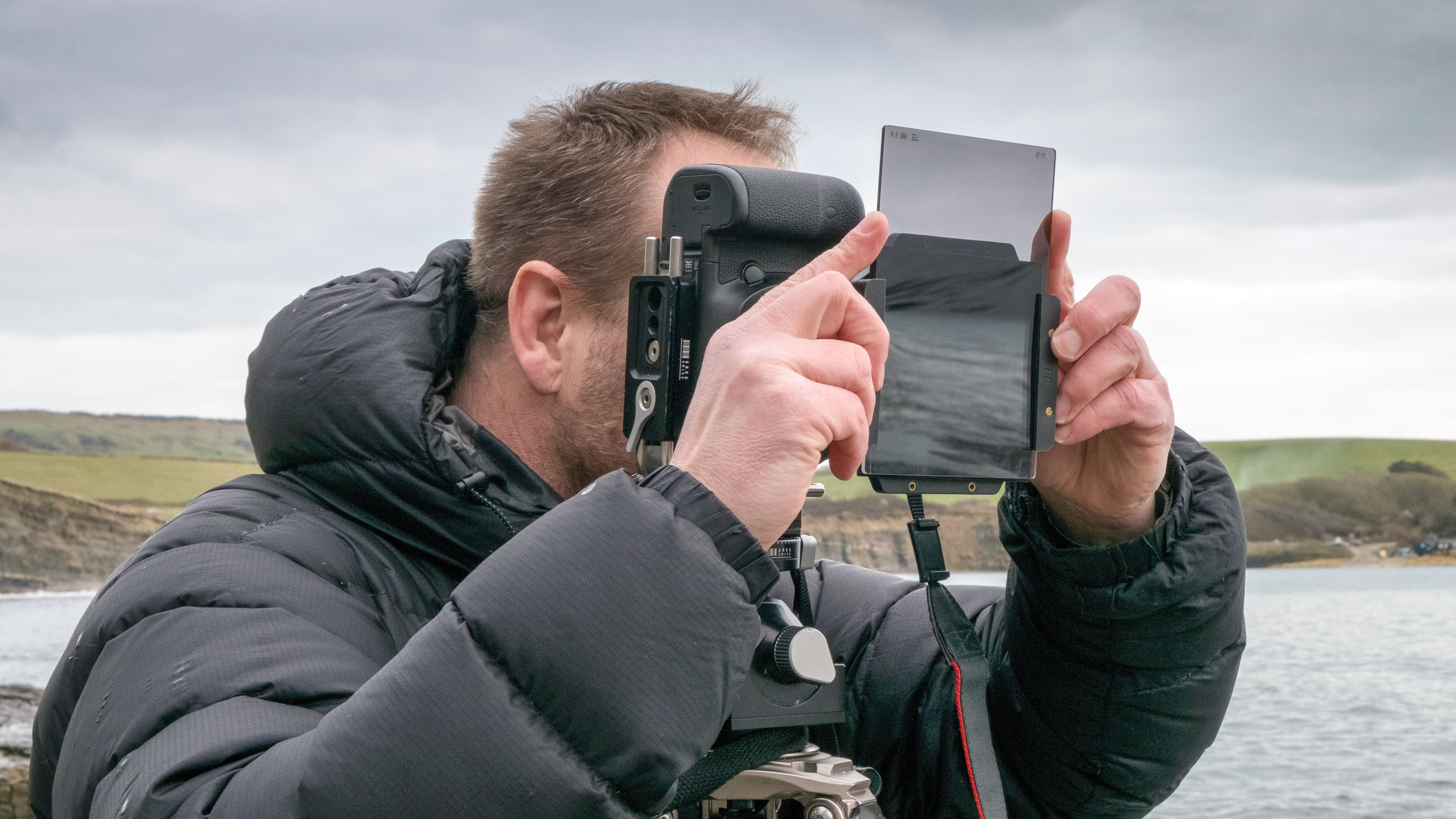
The best ND grad filters can be a landscape photographer's best friend, making it easier to achieve smooth, even exposures when the light isn't playing ball. Sick of overexposed, washed-out skies, or muddy, underexposed foregrounds? An ND grad filter is the ideal solution – and I've picked out the best ones here.
Essentially, an ND grad is a piece of glass that's clear at one end and grey at the other. It's placed in front of the lens, and then by adjusting it so that the darker section of the filter covers the brighter portion of the scene, it restricts the light by several f-stops, thereby ensuring an even exposure in difficult lighting conditions. While this effect can be replicated using HDR (taking multiple exposures and merging them in post-processing), an ND grad filter gets it right in-camera.
Different ND grads offer different intensities of effect, which you may want to use depending on how sharp the contrast is in the scene you're capturing. You also have other filter options: hard grads and soft grads. Hard grads have a sharp transition between light and dark – useful for straight, well-defined horizon lines – while soft grads transition more gradually, which works better for more cluttered scenes, including cityscapes or mountains.
There's also the reverse ND grad filter, which has a dark section across the middle that fades upwards towards the top, and is the filter of choice for capturing sunrises and sunsets, with the sun close to the horizon.
Whichever you choose, ensure you get a filter that physically fits your lens. The larger the filter, the more lens diameters it will cover and the more flexibility you'll have in positioning the transition area; larger filters tend to cost more, however. In this round-up, I've exclusively selected 100x150mm rectangular filters, or filter types that include this option, as this size offers maximum versatility for an affordable price.
All these filters will deliver optical quality with little to no color cast. I've tested them out, and I'm confident you'll be happy with any filter on this list!

Ben is the Imaging Labs manager, responsible for all the testing on Digital Camera World and across the entire photography portfolio at Future. Whether he's in the lab testing the sharpness of new lenses, the resolution of the latest image sensors, the zoom range of monster bridge cameras or even the latest camera phones, Ben is our go-to guy for technical insight. He's also the team's man-at-arms when it comes to camera bags, filters, memory cards, and all manner of camera accessories – his lab is a bit like the Batcave of photography! With years of experience trialling and testing kit, he's a human encyclopedia of benchmarks when it comes to recommending the best buys.
The Quick List

This high-quality set of filters offers options for adding a graduation to flat-horizon shots, like seascapes, at three different stops.
Read more below…
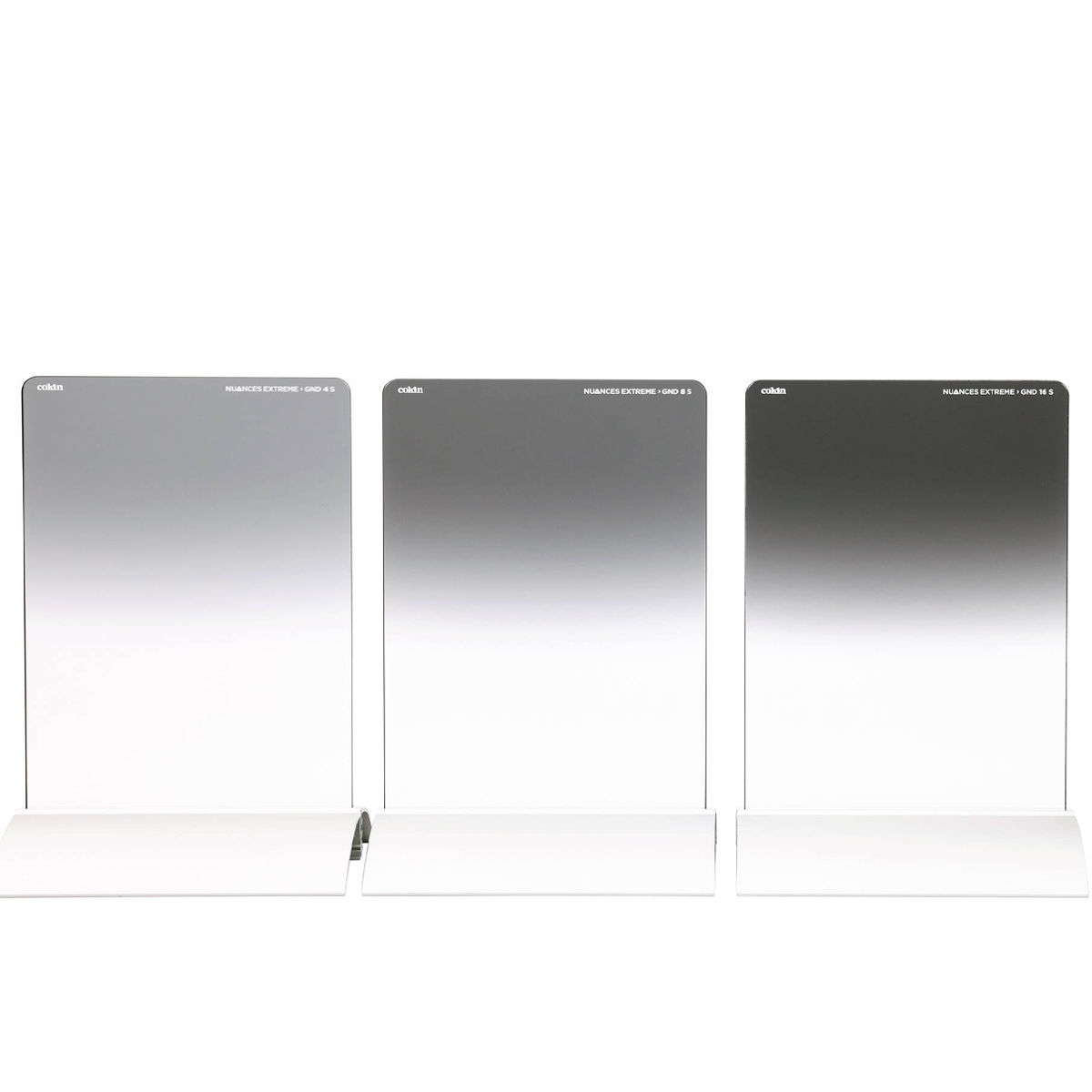
Made from Schott glass, this trio offers soft graduations between two and four stops, for everyday landscape shooting.
Read more below…
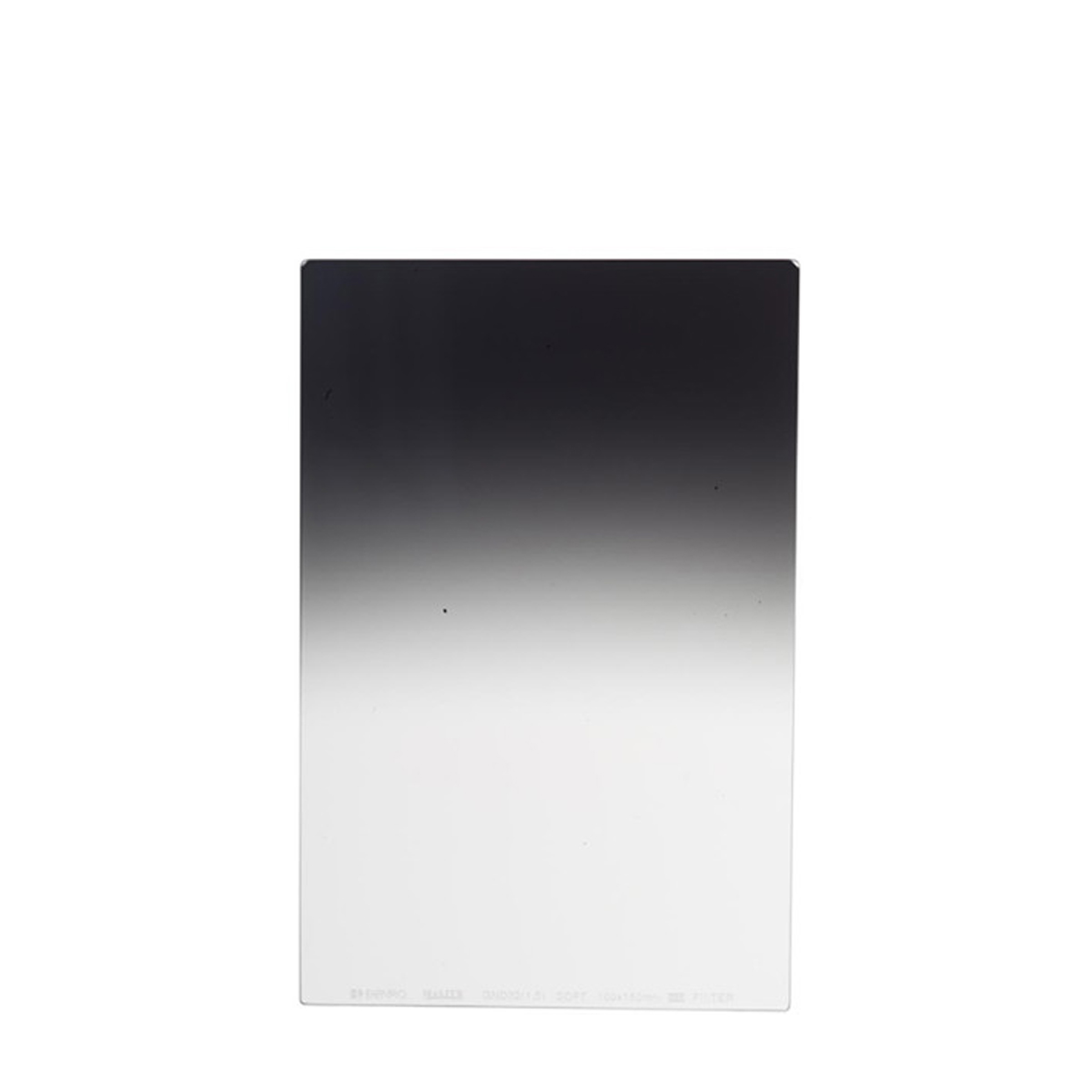
The appealing prices in this range don’t mean any sacrifice in quality, with coatings for waterproofing and reducing color casts.
Read more below…
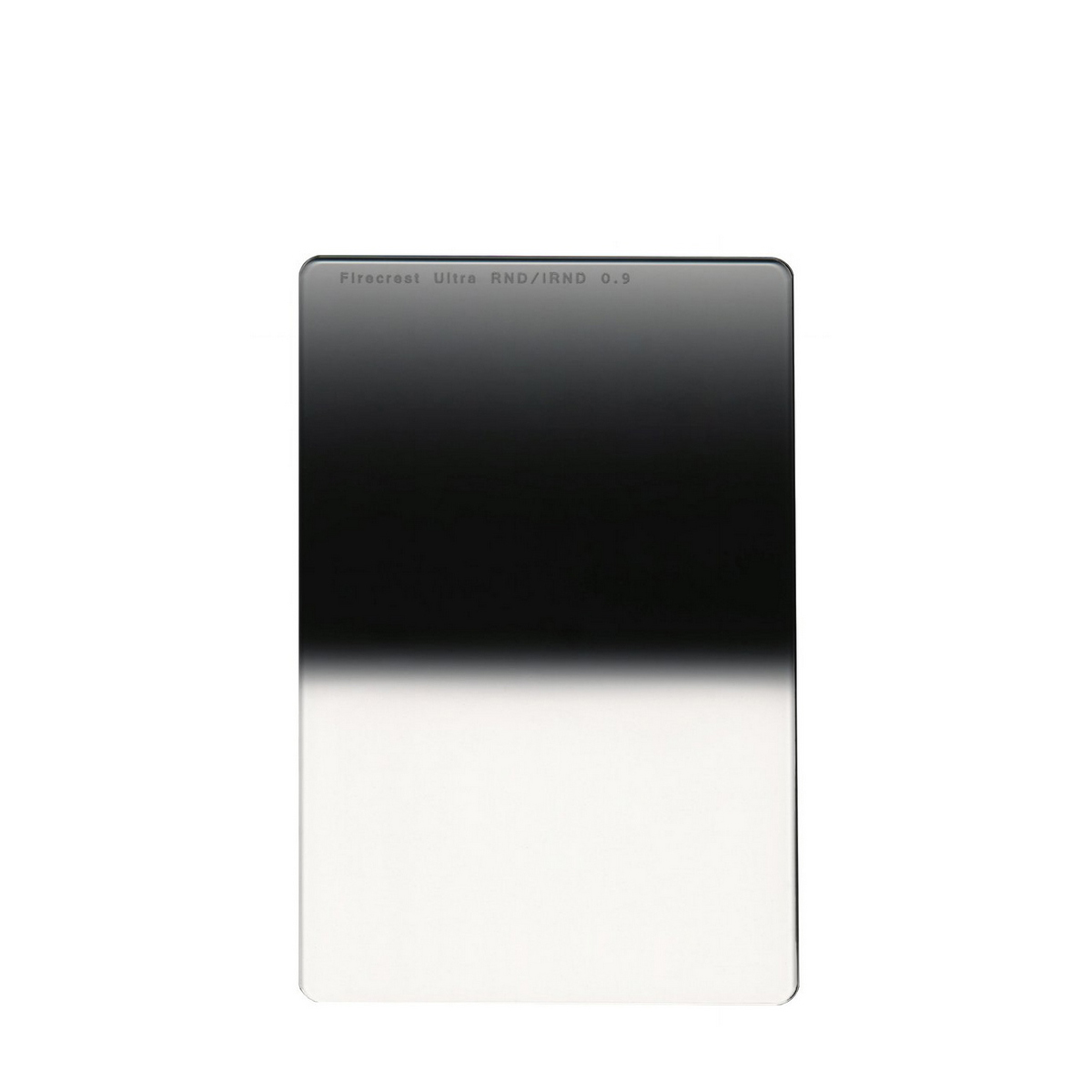
A clever reversal of the usual manufacturing process uses bonded glass, which makes this range more rigid and scratch-resistant.
Read more below…
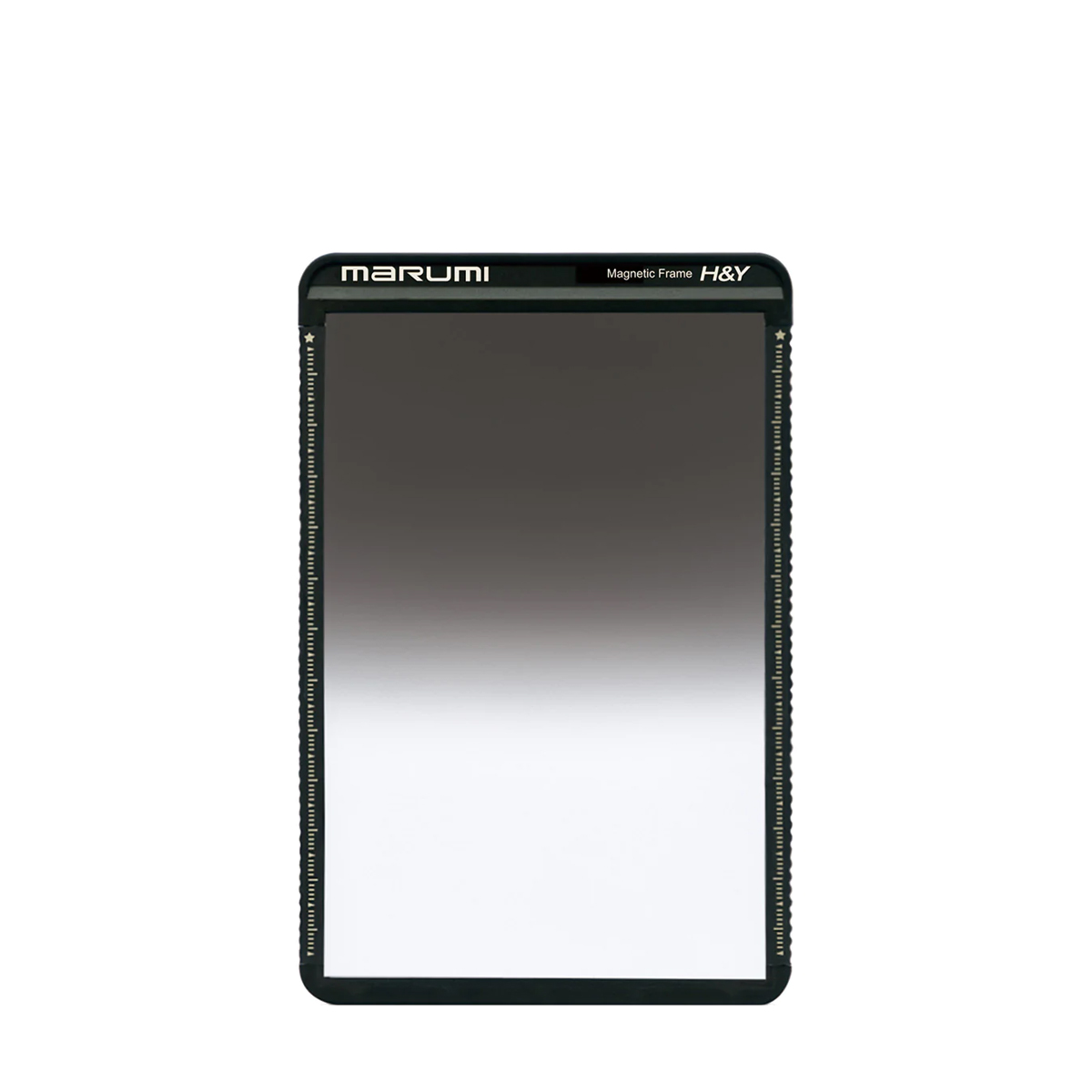
This filter range comes in magnetic frames made by H&Y – just snap the grad onto your filter holder, then slide to adjust the horizon.
Read more below…
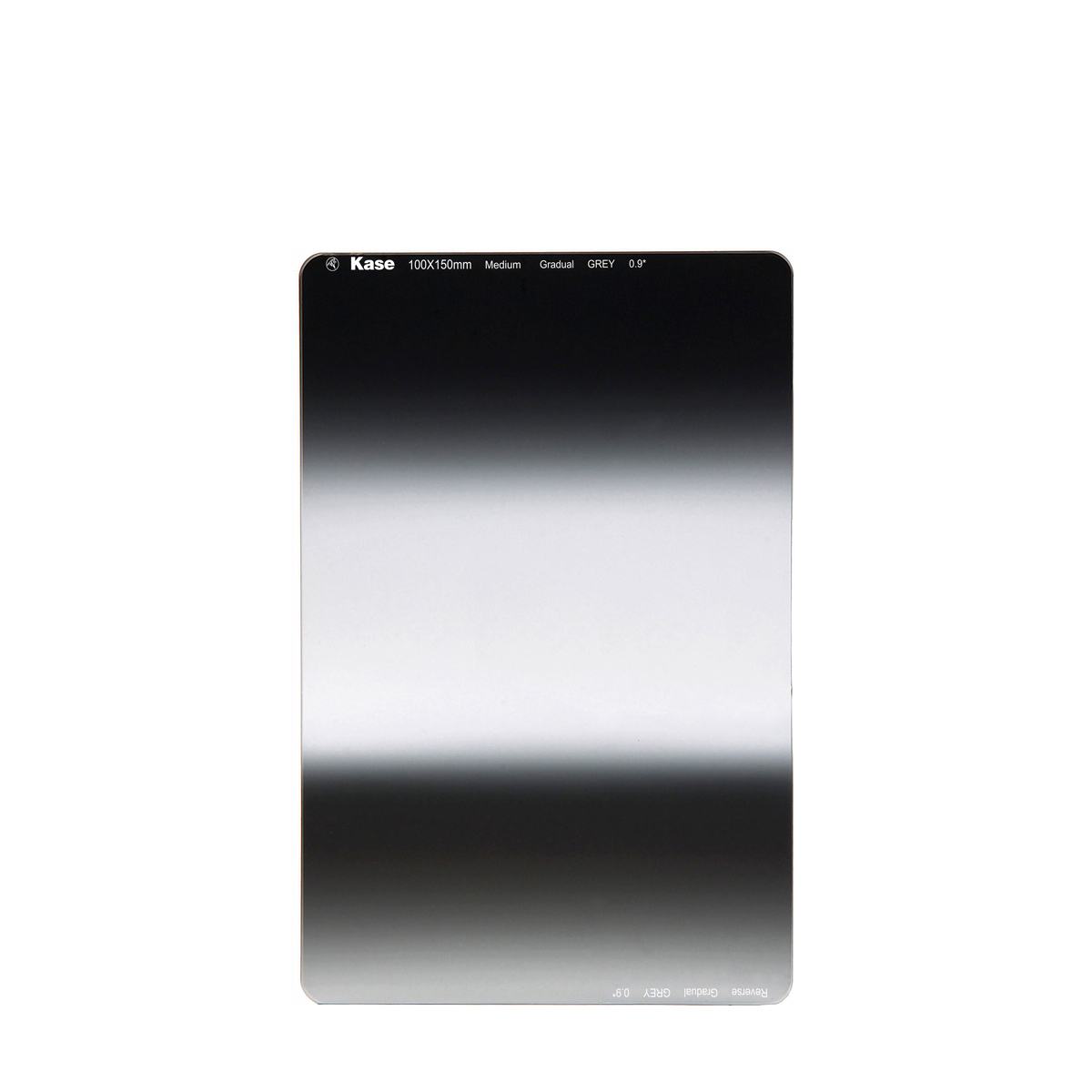
Tired of swapping hard and soft grads to test which works better? This grad offers both in one filter – simply flip it upside-down!
Read more below…
Best ND grad filters in 2026
Why you can trust Digital Camera World
Best hard ND grad kit
1. Lee Filters 100mm Neutral Density Grad Set – Hard
Specifications
Reasons to buy
Reasons to avoid
Unusually for high-end ND grad filters, Lee’s grads are made from polycarbonate resin rather than the more commonplace optical glass. Lee says this makes it easier to dye the tinted portion of the graduation, so that the stated density is more precise and you can position the transition line more accurately. Resin is also said to have lower intrinsic reflectivity, negating the need to apply an anti-reflective coating.
If there is any disadvantage to using resin rather than glass when it comes to image quality, I couldn’t find it. Lee’s grads maintain perfect image sharpness and color neutrality, although my sample filters did produce visibly different exposure brightness, despite adjusting shutter speed appropriately for each filter. The filters do not have a hydrophobic coating, so water doesn’t bead away quite as willingly as with competing filters that feature this.
This set consists of three hard grad filters, which are suitable for level horizons. particularly seascapes. The densities are rated as 0.3, 0.6, and 0.9, equivalent to one, two, and three exposure stops.
Best soft ND grad kit
2. Cokin Nuances Extreme Z-Pro Soft Graduated ND Kit
Specifications
Reasons to buy
Reasons to avoid
I’ve sampled several filters in Cokin’s top-line Nuances Extreme range, and have come away impressed every time. This kit of three 100x150mm soft grad NDs doesn’t disappoint either. Two-, three-, and four-stop densities are included, which cover most landscape shooting scenarios.
Each Cokin filter is constructed from uncompromising Schott glass. Cokin also applies a water and oil-resistant coating, and it works brilliantly. I can’t fault these filters for image sharpness, either, as all three perfectly preserve maximum lens sharpness. Color tint neutrality is also top-notch, although if I'm to nitpick, the density of my sample two-stop filter was slightly darker than specified.
Nuances Extreme ND grads can be had in three size options: P Series (84mm-wide), Z-Pro (100mm-wide), and X-Pro (130mm-wide). I recommend these 100mm Z-Pro filters, though, as they’re a suitable size for lenses with a filter thread up to 95mm.
Best budget ND grad filters
3. Benro Master 100x150mm Glass GND
Specifications
Reasons to buy
Reasons to avoid
Utilizing top-end German Schott B270 optical glass, Benro’s Master Filters boast ULCA (Ultra Low Chromatic Aberration) and reflectivity below 1.5%. A waterproof multicoating is also applied to repel dirt and liquid, and it also resists scratches. Then there’s the anti-infrared coating that blocks IR and UV light to minimize the chance of unwanted color casts.
It all sounds good, and thankfully, my testing of sample two-stop and four-stop filters backs it up. The tinted region has no negative impact on image sharpness and doesn’t introduce any observable color shift. Benro’s hydrophobic coating is also terrific, beading water off the filter without a trace.
Benro Master Filters come in a few size variants, but I reckon the 100x150mm option is the best balance of versatility and cost. Choose from two-, three-, four-, or five-stop densities, in soft, hard, or reverse fades.
The Benro system’s filter holder also deserves a mention. It’s paired with a clever filter frame that can be moved up and down within the holder by a geared wheel, enabling ultra-precise filter positioning.
Best premium ND grad filters
4. Formatt Hitech Firecrest Ultra 100mm Grads
Specifications
Reasons to buy
Reasons to avoid
The distinctive feature of Firecrest Ultra filters is that they have their tinted coating inside the filter, sandwiched between two sheets of 1mm glass. This enhances the scratch resistance of the filter while enabling the glass to be lapped and polished so it's perfectly flat and clear. An added benefit of having two bonded sheets of glass, rather than a single pane, is greater rigidity.
This manufacturing process certainly pays dividends when it comes to optical quality. My testing showed flawless image sharpness, density accuracy, and color neutrality. The only downside of sandwiching the filter coating inside the filter is that there’s no hydrophobic coating on the outside, so water droplets don’t bead away – not great when shooting a seascape.
Firecrest Ultra ND grads are available in soft, hard, or reverse transitions, with the hard-edge grads offered in two- and three-stop densities. While other non-Ultra Firecrest filters can be had in smaller size options, the Ultra range only comes in this 100x150mm guise, but this is the ideal size for most users.
Best magnetic ND grad filters
5. Marumi 100x150mm Magnetic Graduated ND Filters
Specifications
Reasons to buy
Reasons to avoid
Marumi’s filters stand out thanks to their magnetic filter frames (with the frames made by H&Y). When combined with Marumi’s Magnetic Filter Holder M100, the filters simply press onto the holder and detach just as easily, yet still hold securely when in use. The magnets also make it a cinch to slide the filter up and down the holder to precisely align the ND’s transition line to suit your composition. It’s a very neat system.
The frame surrounds premium Schott B270 glass, coated on both sides for scratch, water, oil, and reflection resistance. I tested ND4 (two-stop) and ND16 (four-stop) hard graduated filters, with respectable results. Although the darker ND came up slightly lighter than spec, all other aspects of image quality – sharpness, color neutrality – were flawless. Marumi’s water-repelling coating is also brilliant, beading droplets as effectively as the Benro filter on this list.
The Magnetic Filter System is exclusively 100mm wide – ideal for most stills photography – and you can choose from ND grads with soft, hard, or reverse transitions. All come in two-, three-, or four-stop densities.
Best double ND grad filters
Specifications
Reasons to buy
Reasons to avoid
In a real "why had no one thought of this before?" moment, the Kase Wolverine Double Grad filter is a genuinely game-changing ND grad filter. Normally, when using ND grads, you need to pick whether you want to use a hard grad (a sharp transition from dark to light) or a soft grad (a more gradual one). The Wolverine Double Grad puts both of these types into a single filter, which you can adjust in the 100mm holder according to the transition you want to use.
It's clever, it saves on glass and bag clutter, and most importantly of all, it works. In my testing, I was impressed with the optical performance and smooth handling of the Wolverine Double Grad Soft/Hard version, which performs well with all but the widest focal lengths. I found no color cast in Raw files, and found moving the filter up and down, while monitoring the changing image in Live View, to be highly intuitive.
Read our full Kase Wolverine Double Grad review
How to choose the best ND grad filter
1. Shape
I've solely featured 100mm-wide rectangular ND grad filters, as they're large enough to suit the vast majority of compositions. You can also purchase circular screw-in grad filters, but these tend to be pretty restrictive, as the transition area is in the center of the frame.
2. Neutrality
The clue is definitely in the name here. Good neutral density filters should be neutral, introducing no noticeable color casts or unwanted fuzziness to your images.
3. Density
If you're buying your first ND grad filter, you'll want to consider how you're likely to use it and purchase one that's pretty flexible. If you get too low a density, you might find that overly bright skies can still be overexposed. Alternatively, if you get too dark a density, the skies will take on an overbearing, leaden appearance.
4. Material
The majority of filters are made from optical-grade resin, which makes them lighter and more shatter-resistant than the glass alternatives. However, the downside is that they tend to be more prone to picking up scratches, so be sure to handle them carefully.
5. Versatility
If you invest in an ND grad filter system complete with a filter holder, you then have the option of adding more filters to your line-up later. This means you could use polarizers, 'solid' ND filters, or color grads to add some extra pizazz to your images.
6. Single filters or kits?
If you already have a filter system, you just need to add single filters – you don't need to buy a whole new kit all over again. But if you're just starting out, a filter kit will give you everything you need at a lower all-in price.
7. Double-check the details
It's the strength and transition you need to check. There are lots of permutations! Don't get a 1-stop soft grad when you meant to get a 3-stop hard grad...
How we test filters
When we test filters, we look at both optical performance and general build quality – how robust the filter feels, how easy it is to use and how securely it attaches to the lens. We use a combination of real-world and lens testing to inform our comments in reviews and buying guides. For filters, we test light transmission levels, colour neutrality (i.e. if the filter introduces a cool or warm cast) and the impact a filter has on image quality.
Find out more about how we test and review on Digital Camera World
The best camera deals, reviews, product advice, and unmissable photography news, direct to your inbox!
Ben is the Imaging Labs manager, responsible for all the testing on Digital Camera World and across the entire photography portfolio at Future. Whether he's in the lab testing the sharpness of new lenses, the resolution of the latest image sensors, the zoom range of monster bridge cameras or even the latest camera phones, Ben is our go-to guy for technical insight. He's also the team's man-at-arms when it comes to camera bags, filters, memory cards, and all manner of camera accessories – his lab is a bit like the Batcave of photography! With years of experience trialling and testing kit, he's a human encyclopedia of benchmarks when it comes to recommending the best buys.
